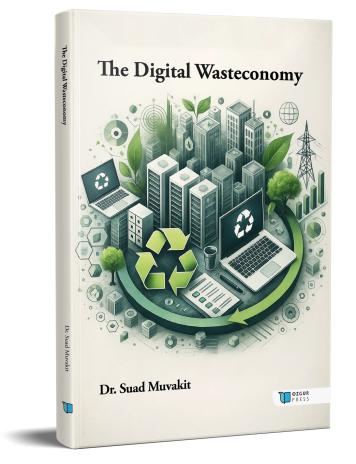
The Digital Wasteconomy
İndir
Özet
The accelerating pace of global urbanization and the increasing complexity of modern consumption patterns have placed the issue of waste at the very center of economic, social, and environmental debates. In recent years, the concept of the waste economy has attracted growing attention from scholars and policymakers seeking to understand the multidimensional impacts of waste generation, management, and recycling on sustainable development.
At the same time, the digital transformation of economies and societies has created both new opportunities and challenges in addressing waste-related issues. The integration of digital tools—such as artificial intelligence, big data, blockchain, and the Internet of Things (IoT)—holds the potential to fundamentally reshape waste management systems, enhance efficiency, and reduce environmental costs. The intersection between waste economics and digitalization thus provides a fertile ground for academic inquiry, particularly in contexts characterized by rapid urbanization and persistent structural challenges.
Turkey, as a country experiencing dynamic economic growth while simultaneously confronting enduring urbanization problems, constitutes a compelling case for examining the intersection between the waste economy and digital innovation. By analyzing the Turkish experience within a global framework, this book aims to contribute to the academic literature and to offer policy-oriented insights not only for Turkey but also for other developing and emerging economies.
The primary objective of this book is to examine the waste economy from a digital perspective in a comprehensive and systematic manner. By integrating theoretical foundations, empirical evidence, and policy discussions, it seeks to provide a holistic understanding of the subject. The intended audience includes scholars, postgraduate students, policymakers, and practitioners interested in sustainable development, waste management, and the digital economy.
It is my sincere hope that this work will serve as a valuable resource for academic research and policy discussions on waste-related issues, while also inspiring new studies that explore the role of digital transformation in shaping sustainable futures.
Dr. Suad Muvakit
September 2025

